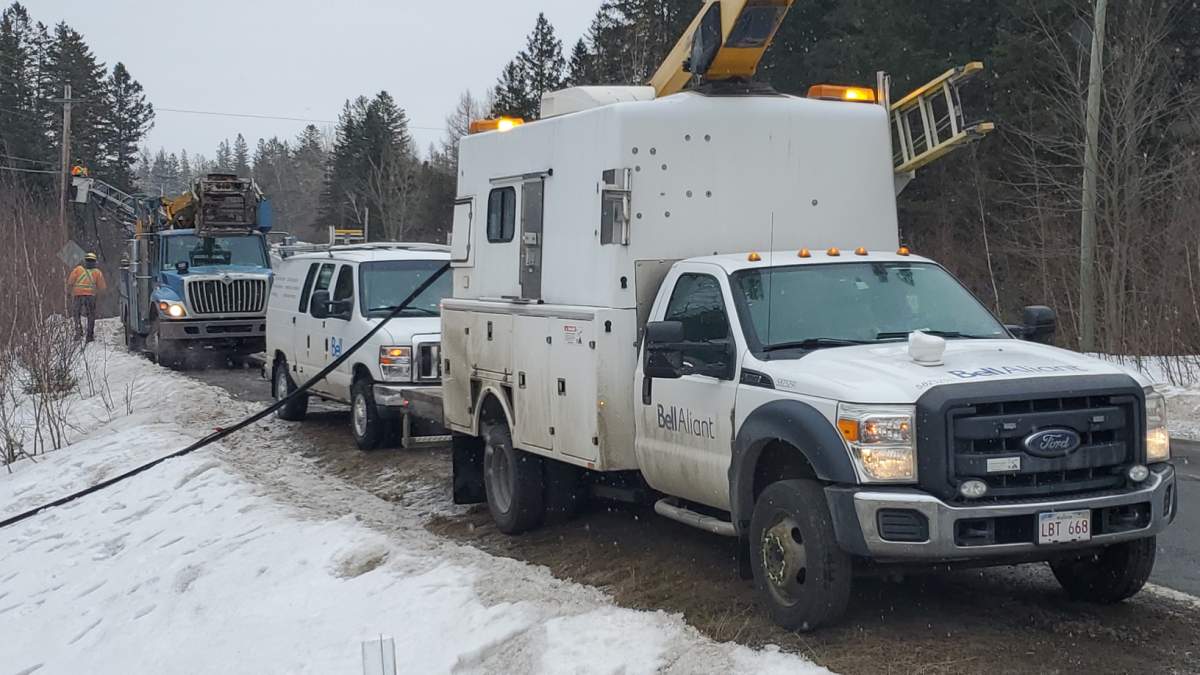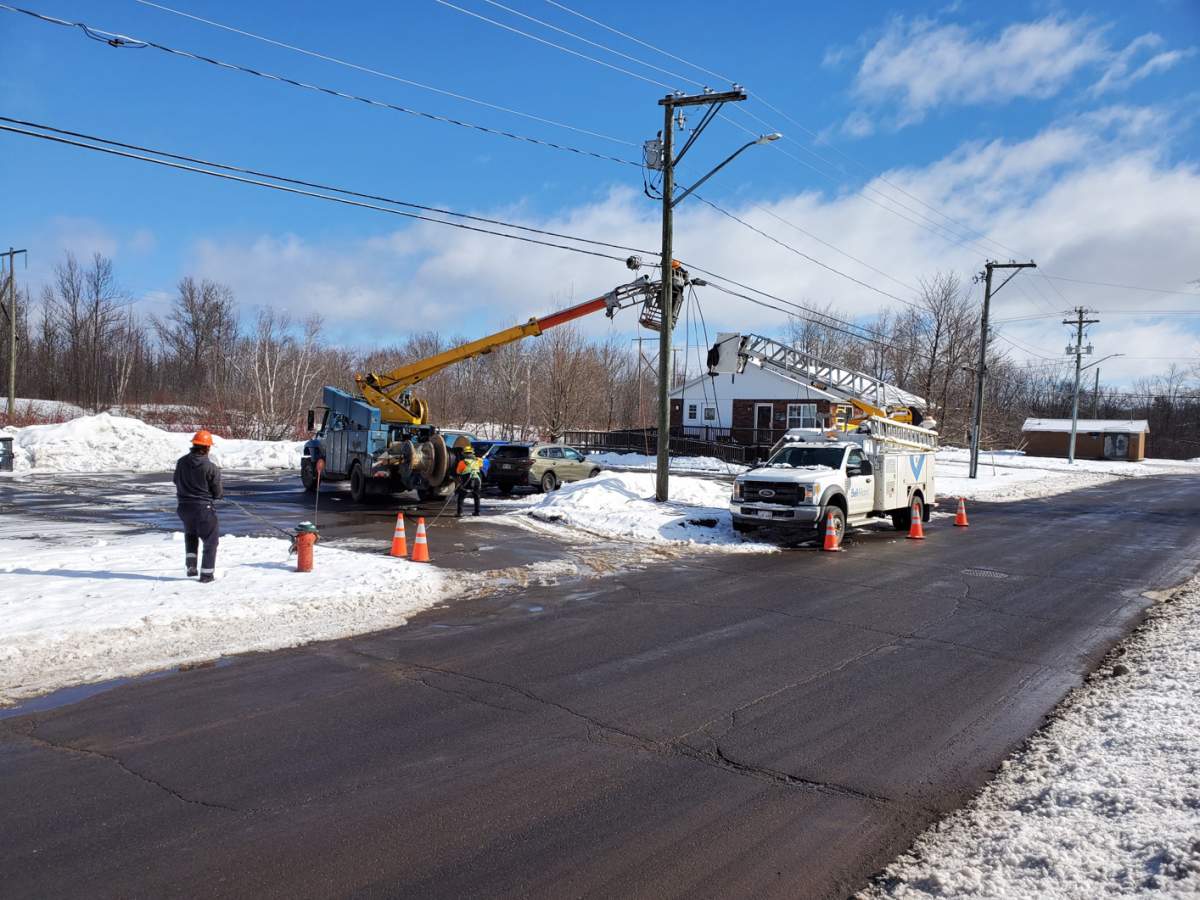Copper wire is a precious metal contained in the phone lines strung across almost every kilometre of New Brunswick – and it’s being ripped out and stolen.

Bell Aliant, which has recorded more than 60 thefts of copper wire since October 2022, said in the last week services were down in the Nasonworth and Oromocto areas because of those thefts. It left nearly 1,200 customers without phone service or internet.
Crews worked to restore services, but the thefts have cost the company more than $1.5 million.
“They are cutting them down using a telescopic pole with grinders attached to the end,” said Dana Lohnes, Bell Aliant director of field operations for Atlantic Canada. “They find a section of cable, they raise the telescopic pole, cut down the cable and chunk it up and take it away for re-sale.”
Lohnes said tools the police have seized show people are attaching the grinder to the end of the poles with duct tape.

Get daily National news
He said it isn’t just the phone lines that get impacted, but everything that’s bundled together. Lohnes explained that in order to cut the copper, everything else has to be cut in the process. When the phone lines are cut in that way, it can mean some people can’t reach 911.
“The telecommunications space is the bottom line,” he said. “We’ll run our copper, or outside wires, and our fibre outside lines in the same space. Often a copper wire and fibre wire … are lashed or bundled together. The collateral damage is, oftentimes, our fibre network.
“They cut through everything on that same bundle.”
Copper wire can sell for up to $5 per pound in Canada, making it extremely profitable. It can be sold to scrap yards. The process to repair the damaged wires can take ten to 12 hours, with four-person crews.
Bell Aliant invested heavily in an alarm system to tell them when there is a disruption to the service, which they then work to locate.
“We’ll see an outage come in through our monitoring centres,” he said. “That will make its way to the technicians who will have to go out, locate the exact area of the damage, and repair the damage.”
He said locating the damage isn’t always simple, especially in more rural areas. While he explained there is no distinguishable difference in the number of thefts occurring in urban and rural areas, rural areas have a different type of geography.
“It’s in very back lot type of locations where sometimes, particularly in winter, a Ski-Doo might be involved or an ATV involved to actually get back to where the areas been damaged is,” he said.
Lohnes said crews have had to work harder than ever to help restore services when thefts occur, making the cost much greater than just replacing the wire.
“They’re getting called out in the middle of the night — literally flashlights on their heads and in their hands trying to determine where the cable has been cut down,” Lohnes said.
In February, New Brunswick’s Department of Justice and Public Safety said it was planning to introduce new rules on copper wire thefts to the Salvage Dealers Licensing Act.
The province had a similar theft issue with catalytic converters and it introduced rules that require scrap yards – which JPS oversees and regulates – to ask for ID from someone selling catalytic converters and the registration for the vehicle it came from.










Comments
Comments closed.
Due to the sensitive and/or legal subject matter of some of the content on globalnews.ca, we reserve the ability to disable comments from time to time.
Please see our Commenting Policy for more.